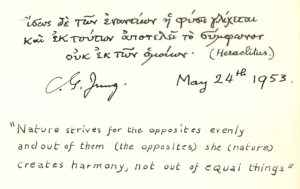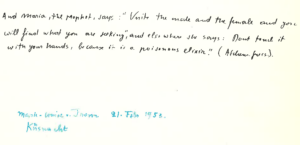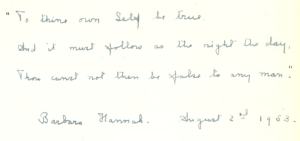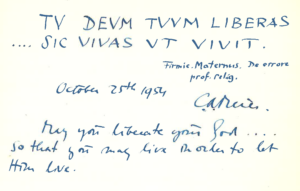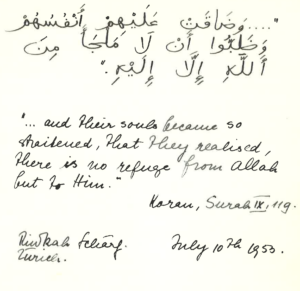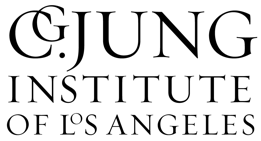
The APC welcomes applications for membership by individuals who have completed 150 hours of analysis with a certified Jungian analyst and obtained a letter of recommendation from the analyst. These membership criteria originated with the Zurich group founded in 1916, and were set forth by Jung. For more information, please make contact with us by Email at apcmemberships@gmail.com.
The Analytical Psychology Club

The Analytical Psychology Club of Los Angeles was founded almost 75 years ago by the first generation of C.G. Jung’s students to settle in Los Angeles. Its purpose was, and still is, to promote wider knowledge of Jung’s work and Jungian concepts amongst its members, and also to a larger audience. APC members include both analysts and people who have had a personal experience of Jungian analysis.
The APC presents public lectures in the spring, summer and fall seasons featuring Jungian analysts, candidates in the training program, APC members and others with knowledge of and experience with Jungian concepts. These public programs are held in the James Kirsch Lecture Room at the C.G. Jung Institute, and are announced in the Institute brochure.
Club members participate in discussion groups on films and books, poetry readings, creative/artistic work, and teachings by analysts and candidates from the Institute training program. Members and guests also gather for social events to celebrate the winter holidays and Valentine’s Day. Each gathering includes a special program for the occasion. The Club celebrates C.G. Jung’s birthday in July with a guest speaker and special program.
While Dr. Jung was alive, the Club would yearly send him birthday greetings, to which he would respond with thanks and gratitude. This personal connection with Jung was a keynote of the early Club.
APC History
The small group of European analysts who founded the Club in 1944 had worked with Jung in Zurich, and brought to the Club their unique backgrounds and experiences, as well as a direct personal link to Jung. Charter members of the Club were Dr. James Kirsch, Hilde Kirsch, Max Zeller, Dr. Fritz Kunkel and Sherry Peticolas. The first Club president was Dr. James Kirsch. Meetings were held at the Kirsches’ home. and so, as the number of participants grew, attendance had to be limited to 30 people. In order to invite speakers from Zurich, a fund of $1,000 was established.
It was an exciting time, as Club members were host to many of the authors we read about today. They were presenting new ideas and theories as Jung was developing them. Marie Louise von Franz, Barbara Hannah, Rivkah Scharf (Kluger) and C.A. Meier were among them. Later speakers included Gerhard Adler, Michael Fordham, Esther Harding and Laurens van der Post. At the same time, members of the Club board were receiving manuscripts of Jung’s work in mimeographed form and sharing them with members. Dr. James Kirsch, for example, personally translated Answer to Job, which he then mimeographed and shared with those who attended his seminar. At the time, this great work of Jung’s was available only in German.
Originally, Club members included analysts and analysands, as had been true in Zurich, but after some time the decision was made that practicing analysts should have a “professional group” that met separately to discuss matters related to their clinical work. In order to establish a training institute, this professional group then went on to found the Jung Society, a group that was separate from the Club and that in time became the C.G. Jung Institute of Los Angeles. Once the separation had taken place, the two groups reached an agreement that the Club would continue to offer its own public programs each season. It was also agreed that the extensive APC library would be combined with that of the Institute to form what we now know as the Max and Lore Zeller Library. The APC has continued to make yearly monetary contributions to support the library in its outreach. The early days of the APC and the formation of the C.G. Jung Institute are beautifully documented in a film made to commemorate the Club’s fiftieth anniversary in 1994. The film is available in the Max and Lore Zeller Library.
